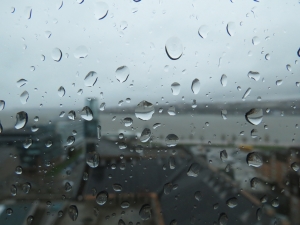Making Your Water Rainwater Soft
There is a reason why so many hair care and beauty product TV commercials feature rainwater washes. This is because rainwater is naturally soft and promotes silky hair and healthy skin. The water that falls to the earth contains no dissolved minerals. The minerals in hard water are picked up as the water travels through the earth to rivers, streams and reservoirs. This means that in the majority of homes, by the time the water reaches your faucet, it already has dissolved calcium and magnesium to cause a number of issues around the home. 
The Challenges of Hard Water:
Hard water is associated with a number of problematic issues throughout the home. According to a study conducted at Ohio State University, domestic cleaning with hard water was less effective and more time consuming with hard water than using soft water. The research team determined that cleaning with hard water took almost four hours, compared to the two and a half hours needed with for the same tasks using softened water. The study also documented that sheets washed using hard water had an increased rate of wear of 30% when compared to soft water. The amount of detergent needed was also increased by up to 45%.
The main reason for this is that soap and detergent attract dirt. Effectively binding the debris particles to the soap and detergent which allows the dirt to be rinsed away. When water is hard, however, the soap binds to the dissolved hard minerals, as opposed to the dirt, increasing the amount of detergent needed to wash away the debris. The excess soap can create a white residue on fixtures, which results in clothes looking dull. The minerals and dirt can also have an abrasive effect, wearing out the fibers of the cloth much faster.
Water Treatment Options:
Fortunately, there are a number of water treatment options to allow you to have rainwater soft water in your home. The most popular form of water treatment is a water softener. This type of system is generally available as a whole of house system. The cost of the system can vary greatly according to its size and sophistication, however, all of these softeners work on the same principle. The ions of calcium and magnesium, which are the cause of water hardness are exchanged for sodium ions. This ion exchange is achieved using small beads of resin (or media) in a cylinder. The water is passed through the cylinder and the mineral ions are attracted to the resin beads. These beads are periodically rinsed or regenerated with a brine solution to allow the calcium and magnesium to be rinsed away out of the water. This form of water treatment offers an immediate improvement in the condition of the water.
Treated water is cost effectively softened, allowing detergents and soaps to perform effectively and clean as they were designed to do. This means that laundry, dishwashing and even bathing will no longer have the adverse side effects of hard water. One can see that skin no longer feels dry, dishes no longer have spotting and laundry looks bright and clean. This allows a user to save time and money, outweighing the costs of the water treatment device and its operating running costs.
About The Author:
Greg Scott is President of Valparaiso based Miracle/EcoWater Systems, the premier water conditioning company in Northwest Indiana serving the Lake, Porter and LaPorte County areas. A 3rd generation water treatment professional, Greg grew up in the family owned business started by his grandfather in the late fifties. He has made water treatment his life and under his direction and high-standards, the company’s water treatment experience, knowledge, and products are unrivaled in region.
Back to
